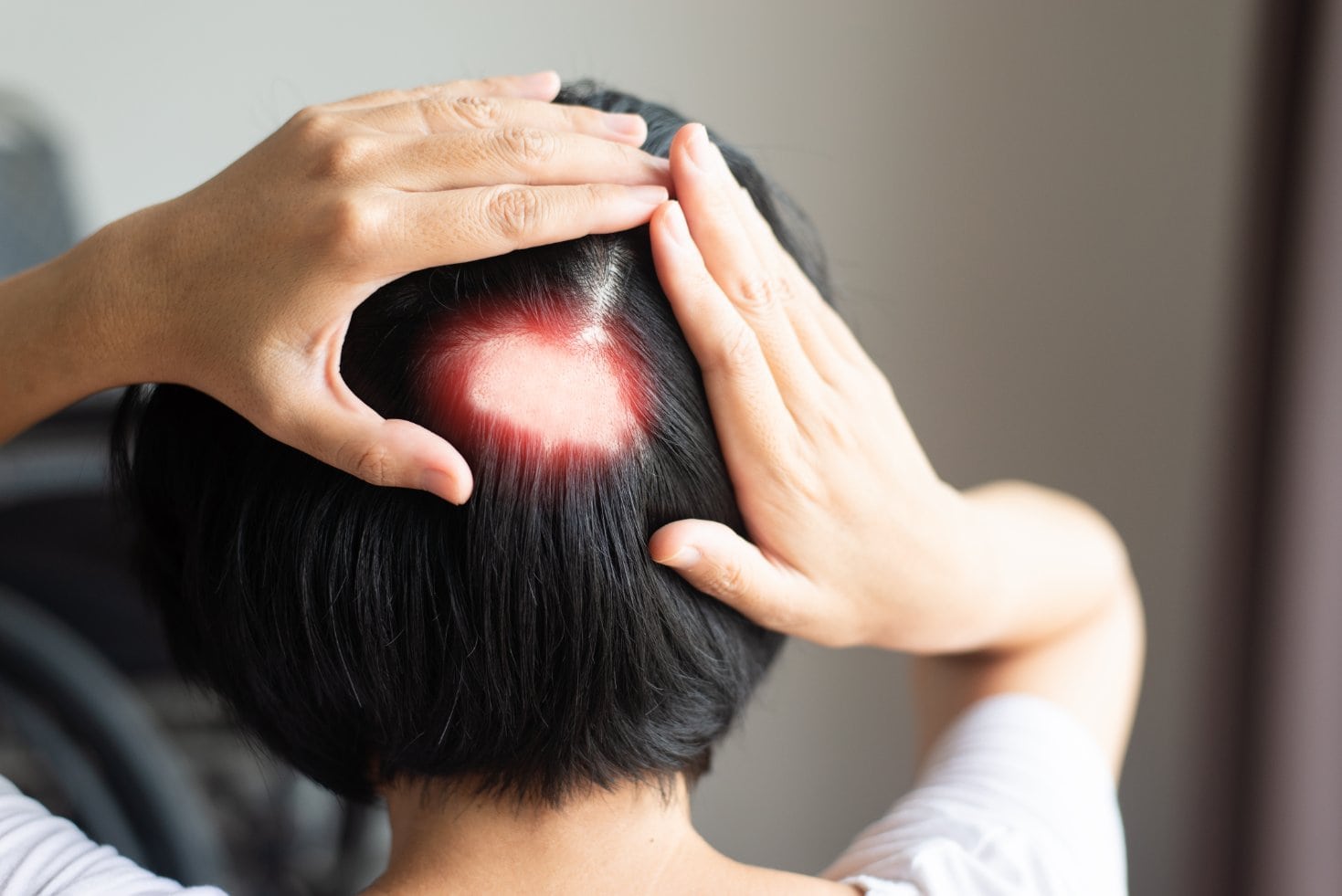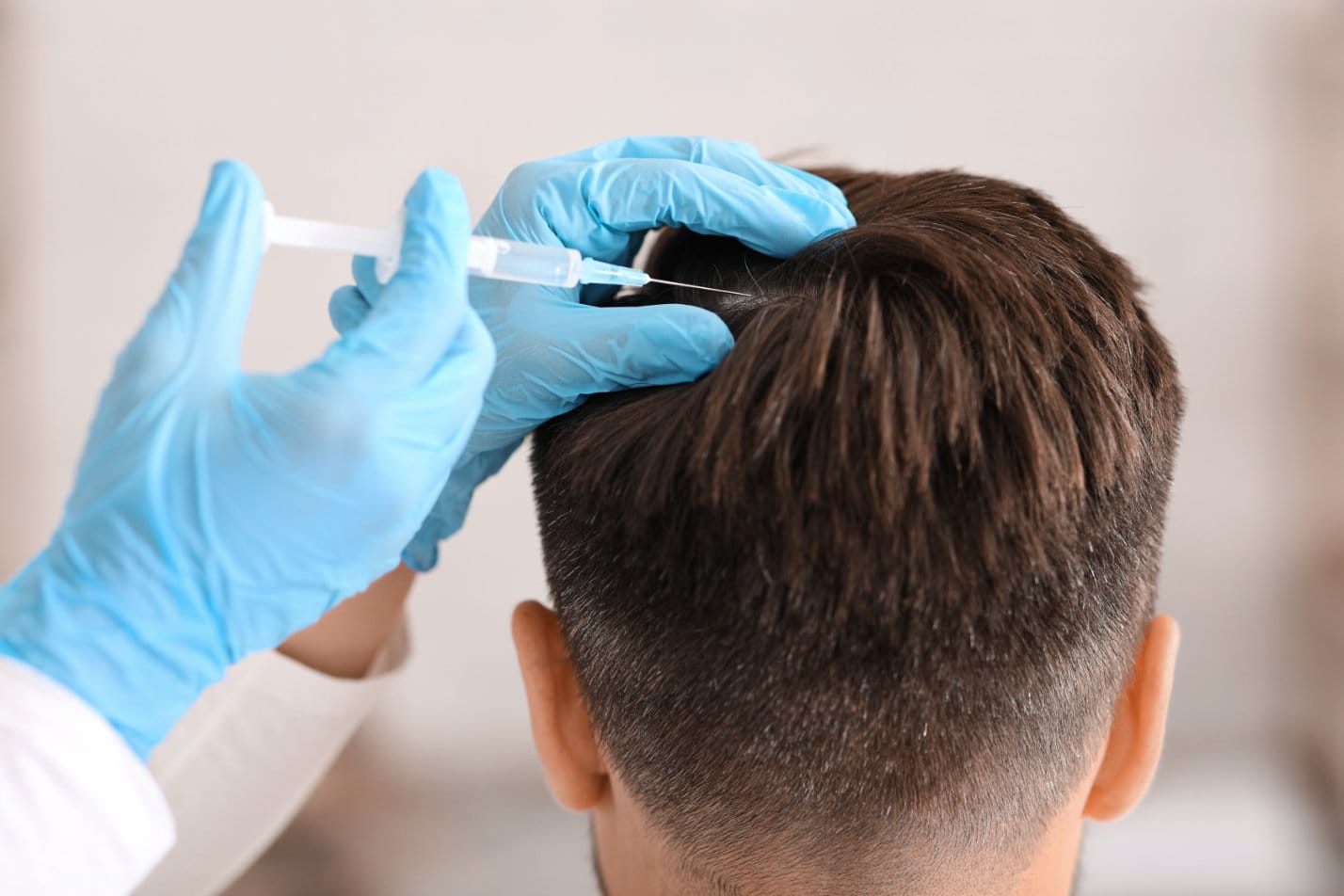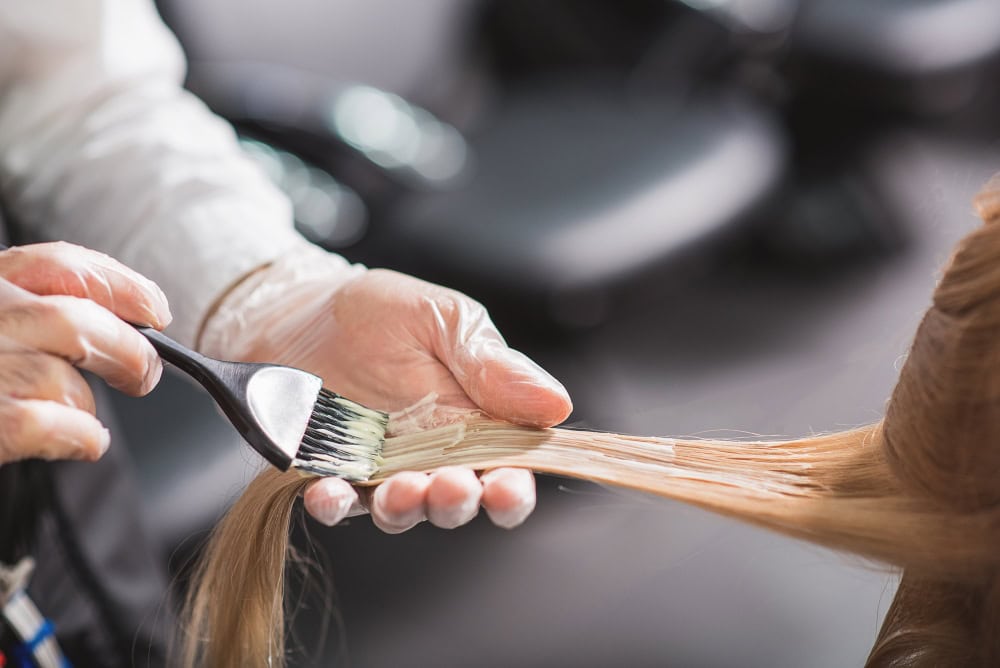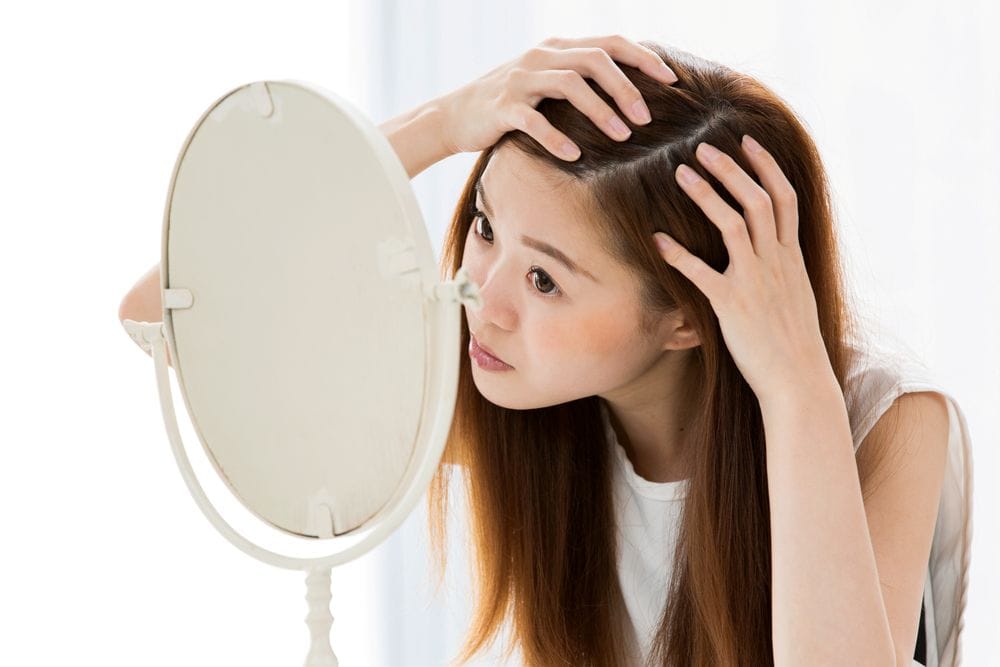Alopecia areata, also known as patchy hair loss, is not a life-threatening condition but it significantly impacts one’s self-image and confidence. In order to choose the right treatment to help manage it effectively, you need to understand the root causes.
What Is Alopecia Areata?
Alopecia areata is an autoimmune condition where the immune system abnormally attacks hair follicles and causes hair loss in patches. It can occur in both men and women of any age, and in some cases, it also affects eyebrows, beards, or body hair. Common symptoms include:
- Hair falling out in distinct, circular patches
- No redness, itching, or inflammation on the affected scalp area
- Hair strands falling out appear thicker at the tip and thinner at the root, resembling an exclamation mark
Causes of Alopecia Areata
Several factors can trigger this condition, including:
Genetics
If family members have a history of alopecia areata, you are more likely to develop this condition due to inherited genetic traits.
Stress
Stress, whether from chronic illness or insufficient rest, including accumulated stress from daily pressures, anxiety, or depression, can cause patchy hair loss.
Autoimmune Diseases
Patients with autoimmune disorders such as thyroid disease or vitiligo have a higher risk of developing alopecia areata.
Medications
Taking specific medications, such as chemotherapy drugs or hormonal treatments, may have side effects that result in hair loss in patches.
Nutritional Deficiencies
Lack of essential nutrients, especially iron, zinc, and biotin, can weaken hair follicles and lead to hair loss.

Treatment Approaches for Alopecia Areata
Physicians commonly recommend medication for patients experiencing patchy hair loss, particularly when caused by autoimmune conditions. Different medications serve various purposes and applications:
Corticosteroid
Corticosteroids suppress abnormal immune system responses. Doctors typically recommend injections in affected areas every 4-6 weeks, to stimulate hair regrowth.
Topical Minoxidil 5% Solution
A popular topical treatment for hair loss, 5% Minoxidil stimulates scalp blood circulation so hair follicles receive adequate nutrients for better regrowth. Doctors recommend applying it twice daily, morning and night, after washing hair.
Topical Immunotherapy
Doctors recommend weekly applications at gradually increasing concentrations to stimulate new hair growth. This treatment is suitable for patients who do not respond to other topical treatments, but it requires close medical supervision as it may cause allergic reactions and irritation.
Hair Transplantation for Alopecia Areata
Micrograft hair transplantation uses high-precision instruments to transfer healthy hair follicles to balding areas. The follicles are separated into small micrografts and carefully implanted in designated areas to achieve natural-looking hairlines.
Effective Solutions for Alopecia Areata
While alopecia areata can cause appearance-related anxiety, the appropriate treatment methods can help restore both hair growth and boost self-confidence. At Max Hair Clinic, we offer advanced hair transplant solutions backed by positive hair transplant reviews from satisfied clients, including top celebrities in Thailand.
Contact us for a free initial consultation at 061-496-5156 or WhatsApp: Max Hair Clinic.
References:
- Alopecia Areata. Retrieved on January 28, 2025 from https://www.si.mahidol.ac.th/th/division/HpH/admin/download_files/146_49_1ni5th7.pdf
- The meaning of Alopecia Areata. Retrieved on January 28, 2025 from https://www.pobpad.com/alopecia-areata-โรคผมร่วงเป็นหย่อม
- Alopecia Areata. Retrieved on January 28, 2025 from https://www.si.mahidol.ac.th/th/division/hph/admin/news_files/560_49_1.pdf





